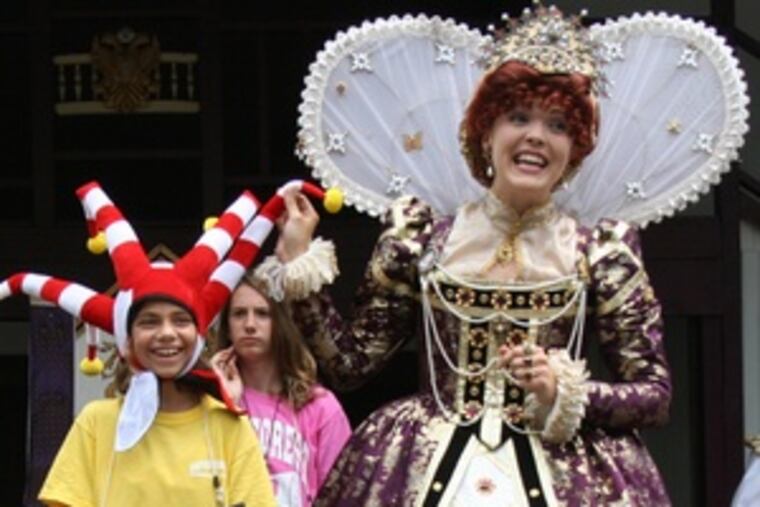Pennsylvania Renaissance Faire sues over COVID-19 funds for entertainment venues
Pennsylvania Renaissance Faire is suing the U.S. Small Business Administration over its denial of $5.8 million in pandemic relief funds

The pandemic hath brought a financial plague on many businesses, one of them a popular Elizabethan festival that brings 200,000 merrymakers to the Lancaster area for weekends of beer-quaffing, jousting, and honoring the queen.
The outdoor Pennsylvania Renaissance Faire — which says its revenue fell more than 70% at one point in 2020 — is suing the U.S. Small Business Administration over its denial of $5.8 million in pandemic relief funds. Ren Faire, as it’s known, says that the federal agency did not give a reason for the denial and is asking a federal judge in Philadelphia to award it the coin of the realm that it believes it deserves.
“The COVID-19 pandemic has had a devastating impact on Ren Faire,” says the suit, which seeks a judge to award the relief funds. The firm’s attorney said Ren Faire would not comment beyond what’s in the suit.
The U.S. government threw a pandemic lifeline to business through the Paycheck Protection Program. A smaller rescue package was the Economic Aid to Hard-Hit Small Businesses, Nonprofits, and Venues Act, with $16.2 billion for grants for live event operators, theatrical producers, museums, zoos, aquariums, and comedy clubs.
» READ MORE: Philly’s Lady Bud Knight gets trip to Comic-Con and origin story from Bud Light
The federal agency distributed $420 million of those grants to Pennsylvania organizations, with about one-third going to Philadelphia groups, such as $8 million for the Franklin Institute and $3.4 million to the Please Touch Museum. The maximum grant under the federal law was $10 million. Smaller Philly recipients included $225,055 to the Insectarium and Butterfly Pavilion, $701,226 to FringeArts, and $34,649 for Jeanne Ruddy Dancers Inc., SBA data show.
The Ren Faire, in Manheim, is part of a bigger corporate umbrella that includes the Celtic Fling & Highland Games, Blues Festival, Fabulous Fifties Revival, and Country Jam. The firm needs the grant for the reason that the federal government created the program: “to help eligible live entertainment businesses like Ren Faire recover from the major setbacks they have experienced because of the pandemic,” the suit says.
The suit says that Ren Faire’s 2020 revenues were down 47% in the second quarter and 72% in the third quarter — a popular time for the fair.
The SBA did not respond for comment.
» READ MORE: Pennsylvania Ballet’s latest virtual performance is almost like being there
The fairs are a small corner of the entertainment business. Participants like the escapism of another era, dressing in costumes, and the mostly family-friendly entertainment themed around Queen Elizabeth. The website Renlist shows 145 fairs, most of them renaissance fairs but also some with pirate themes, for 2022 throughout the United States. Some fairs, which operate with a cast of local or traveling vendors, draw upwards of tens of thousands of participants. At its peak, Renaissance Magazine boasted a circulation of 35,000. It recently ceased publication after 24 years.
Daniel Kostelec, 41, who does Shakespeare-themed improv shows that he describes as cartoonish at renaissance fairs around the country, said that 2020 was difficult because many fairs shut down. “Many of us were trying to navigate the unemployment system,” Kostelec said. Some quit the business. “I know someone who is selling real estate,” he said.
Conditions improved in 2021 even though performers and festivalgoers wore masks that interrupted interaction and fun times, said Kostelec, who performs under the name Shakespeare Approves.
Michael Ulrich, who says he’s the photographer for the Ren Faire, said the Ren Faire opened in 2020, but it capped its audience well below normal.
Ulrich said attendance rebounded in 2021, but it still had a cap.
“A lot of people will not drive from Lebanon or Lancaster to work part time in a burger stand or a turkey-leg stand,” Ulrich said. “It’s like a community theater trying to get the funds.”